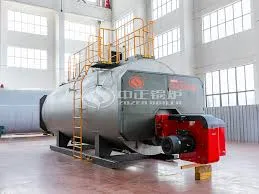- Afrikaans
- Albanian
- Amharic
- Arabic
- Armenian
- Azerbaijani
- Basque
- Belarusian
- Bengali
- Bosnian
- Bulgarian
- Catalan
- Cebuano
- China
- China (Taiwan)
- Corsican
- Croatian
- Czech
- Danish
- Dutch
- English
- Esperanto
- Estonian
- Finnish
- French
- Frisian
- Galician
- Georgian
- German
- Greek
- Gujarati
- Haitian Creole
- hausa
- hawaiian
- Hebrew
- Hindi
- Miao
- Hungarian
- Icelandic
- igbo
- Indonesian
- irish
- Italian
- Japanese
- Javanese
- Kannada
- kazakh
- Khmer
- Rwandese
- Korean
- Kurdish
- Kyrgyz
- Lao
- Latin
- Latvian
- Lithuanian
- Luxembourgish
- Macedonian
- Malgashi
- Malay
- Malayalam
- Maltese
- Maori
- Marathi
- Mongolian
- Myanmar
- Nepali
- Norwegian
- Norwegian
- Occitan
- Pashto
- Persian
- Polish
- Portuguese
- Punjabi
- Romanian
- Russian
- Samoan
- Scottish Gaelic
- Serbian
- Sesotho
- Shona
- Sindhi
- Sinhala
- Slovak
- Slovenian
- Somali
- Spanish
- Sundanese
- Swahili
- Swedish
- Tagalog
- Tajik
- Tamil
- Tatar
- Telugu
- Thai
- Turkish
- Turkmen
- Ukrainian
- Urdu
- Uighur
- Uzbek
- Vietnamese
- Welsh
- Bantu
- Yiddish
- Yoruba
- Zulu
دېكابىر . 23, 2024 10:22 Back to list
Innovative Techniques for Custom Colloidal Silica Casting Applications and Benefits
Custom Colloidal Silica Casting Revolutionizing Precision Manufacturing
In the modern landscape of manufacturing, precision and adaptability are paramount. One innovative method gaining traction in various industries is custom colloidal silica casting. This advanced technique leverages the unique properties of colloidal silica to produce intricate and high-quality components that meet specific design requirements. This article delves into the fundamentals of colloidal silica casting, its benefits, applications, and the future of this remarkable technology.
Understanding Colloidal Silica
Colloidal silica is a stable dispersion of silica particles in a liquid medium, typically water. Due to its nanoscale particle size, colloidal silica exhibits excellent flowability, high surface area, and remarkable bonding properties. This makes it an ideal material for creating precision casts in various applications, including ceramics, metals, and polymer composites.
The Colloidal Silica Casting Process
The custom colloidal silica casting process involves several key steps
1. Preparation of the Mold A mold is crafted from a material that can withstand the casting process. This could be made from high-temperature materials or flexible molds, depending on the end product requirements.
2. Mixing The colloidal silica is mixed with other additives or binders to enhance its properties. This may include the incorporation of other materials to improve strength, thermal stability, or chemical resistance.
3. Casting The prepared colloidal silica mixture is poured into the mold. Its fluid nature ensures it fills all cavities and intricate features, capturing fine details that are often lost in other casting methods.
4. Curing After casting, the mixture undergoes a curing process, which can involve heat treatment or simply allowing the silica to set over time. This step solidifies the cast, yielding a strong and durable end product.
5. Finishing Once cured, the casting is removed from the mold and may undergo finishing processes such as polishing, machining, or coating to achieve the desired surface quality and characteristics.
Benefits of Custom Colloidal Silica Casting
custom colloidal silica casting

The adoption of colloidal silica casting offers numerous advantages over traditional casting methods
- High Precision The ability to create complex geometries with tight tolerances makes this method ideal for applications requiring high accuracy, such as aerospace or medical device manufacturing.
- Versatility Custom colloidal silica formulations can be tailored to meet specific performance requirements, making it suitable for a wide range of materials and applications.
- Improved Surface Finish The smoothness of colloidal silica casts often reduces or eliminates the need for extensive post-processing, saving time and cost.
- Low Shrinkage This method typically results in lower shrinkage compared to other casting techniques, leading to more consistent dimensions in the final product.
- Environmentally Friendly Many colloidal silica formulations are water-based, reducing the reliance on harmful solvents and contributing to more sustainable manufacturing processes.
Applications Across Industries
The versatility of custom colloidal silica casting lends itself to a diverse array of applications. In the medical field, it is used to create intricate implants and prosthetics with high biocompatibility. In the automotive and aerospace sectors, it aids in producing lightweight, high-strength components that contribute to fuel efficiency and performance. The electronics industry benefits as well, with colloidal silica used in the manufacture of precision parts and enclosures that require effective thermal management.
The Future of Custom Colloidal Silica Casting
As technology continues to evolve, so too will the capabilities and applications of custom colloidal silica casting. Advancements in material science and engineering may lead to even greater improvements in performance characteristics, enabling the production of advanced materials with unparalleled qualities.
Moreover, the integration of digital manufacturing techniques, such as 3D printing, with colloidal silica casting may open up new avenues for customization and rapid prototyping. This fusion of technologies could streamline production processes and enhance design flexibility, allowing manufacturers to meet the ever-changing demands of the market more effectively.
In conclusion, custom colloidal silica casting represents a significant leap forward in precision manufacturing. With its unique properties, flexible applications, and numerous benefits, this innovative technique is poised to reshape the future of various industries. As the technology matures and becomes more accessible, it will undoubtedly play a pivotal role in meeting the challenges of modern manufacturing.
-
8mm Thin-Walled Cast Steel Manhole Cover Pallet Bottom Ring | Durable
NewsAug.04,2025
-
Premium Cast Iron Water Main Pipe: Durable, Corrosion-Resistant
NewsAug.03,2025
-
Durable Cast Iron Water Mains | AI-Optimized Systems
NewsAug.02,2025
-
High-Efficiency Propane Boiler for Baseboard Heat | Save Energy
NewsAug.01,2025
-
Premium Source Suppliers for Various Gray Iron Castings
NewsJul.31,2025
-
Durable Cast Iron Water Main Pipes | Long-Lasting
NewsJul.31,2025


